News
Moroccan Charity, Najiba Foundation, Faces Account Termination by ING Bank for AML Failures
Internationale Nederlanden Groep (ING) wants to terminate one of the largest Moroccan charity fou...
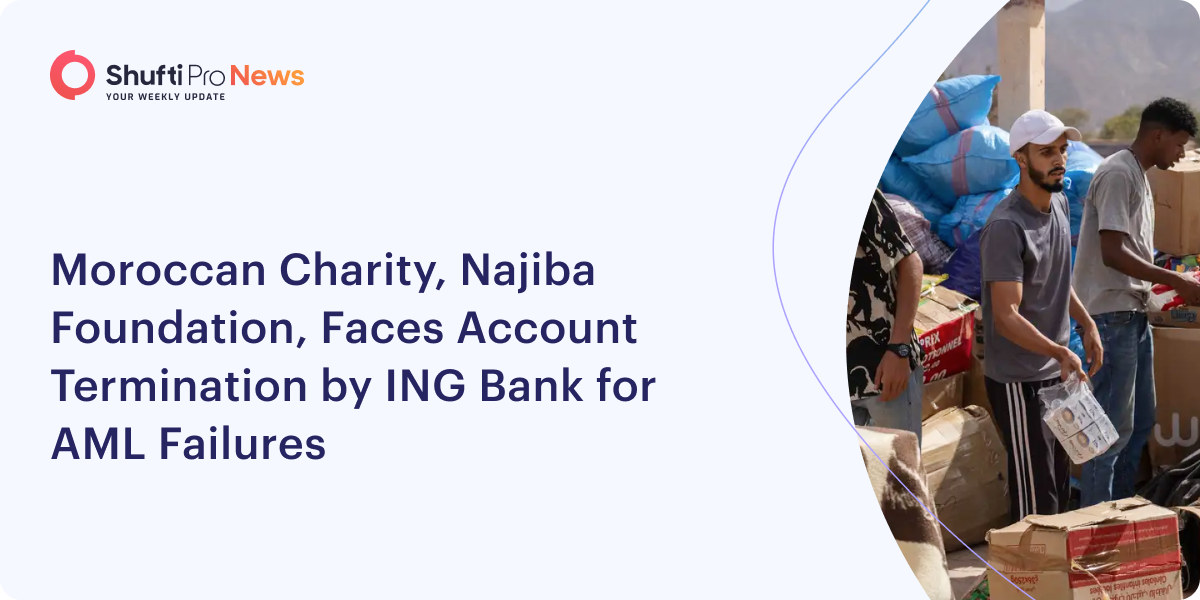 Explore More
Explore More
News
CIBC Fined C$1.3M by Canadian Anti-Money Laundering Authority
Canadian regulatory authorities imposed a $1.3m penalty on the Canadian Imperial Bank of Commerce...
 Explore More
Explore More
News
Anti-Money Laundering Assessment of Sri Lanka Expected Shortly by FATF
In a recent statement, President Ranil Wickremesinghe announced that Sri Lanka will begin its nex...
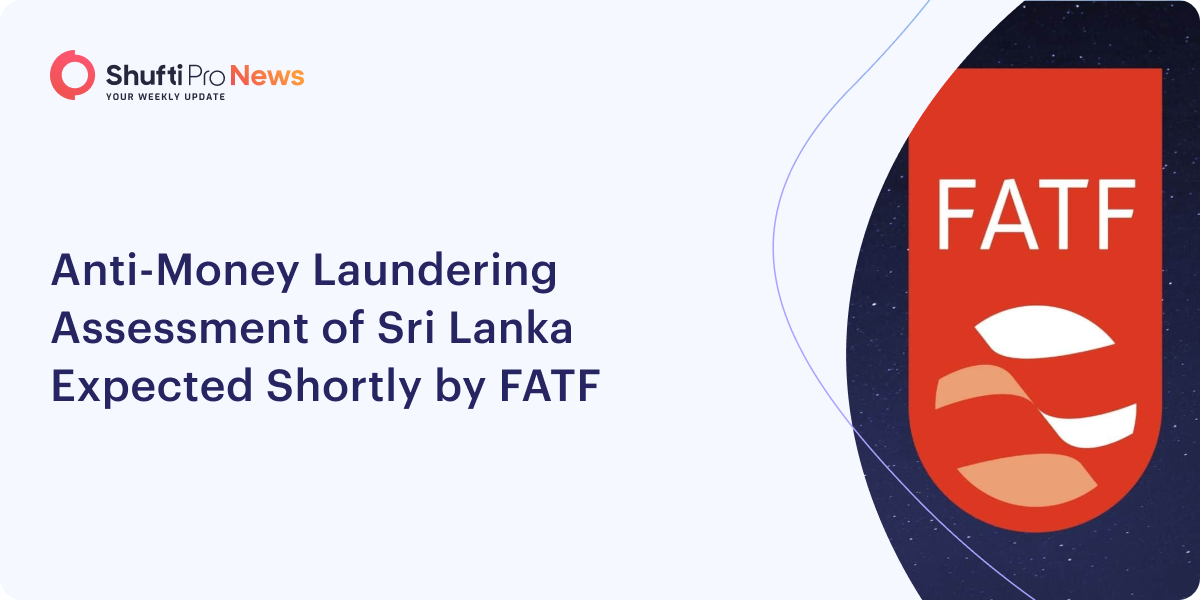 Explore More
Explore More
News
FCA Advises Firms to Embed Data and Technology to Combat Financial Crimes
Sarah Pritchard, the FCA executive director of markets, spoke at the Financial Crime Summit in Lo...
 Explore More
Explore More
News
Taiwan FSC Fines Taishin Int’l Bank For Inadequate Internal Controls
Taishin Commercial Bank of Taiwan penalised for defrauding NT $347 million from customers and fai...
 Explore More
Explore More
News
US Blocks Tornado Cash Investors for Money Laundering Risks & Links to Korean Hackers
The United States has frozen the assets of crypto investors from Tornado Cash Service, saying it ...
 Explore More
Explore More
News
AUSTRAC to Update Guidance for Threshold Transaction Reporting
AUSTRAC has made it mandatory for reporting entities to include a threshold transaction report (T...
 Explore More
Explore More
News
Bank of Lithuania Revokes License of UK Payments Firm for AML Failures
Transactive Systems Ltd., which processed more than €1 billion of payments every month, has had i...
 Explore More
Explore More
News
Ontarians Lost More than $118M to ‘Grandparent Scam’ in 2022, Reports
‘Grandparent scam’ cost Ontario residents more than $118 million. Scammers call elderly people an...
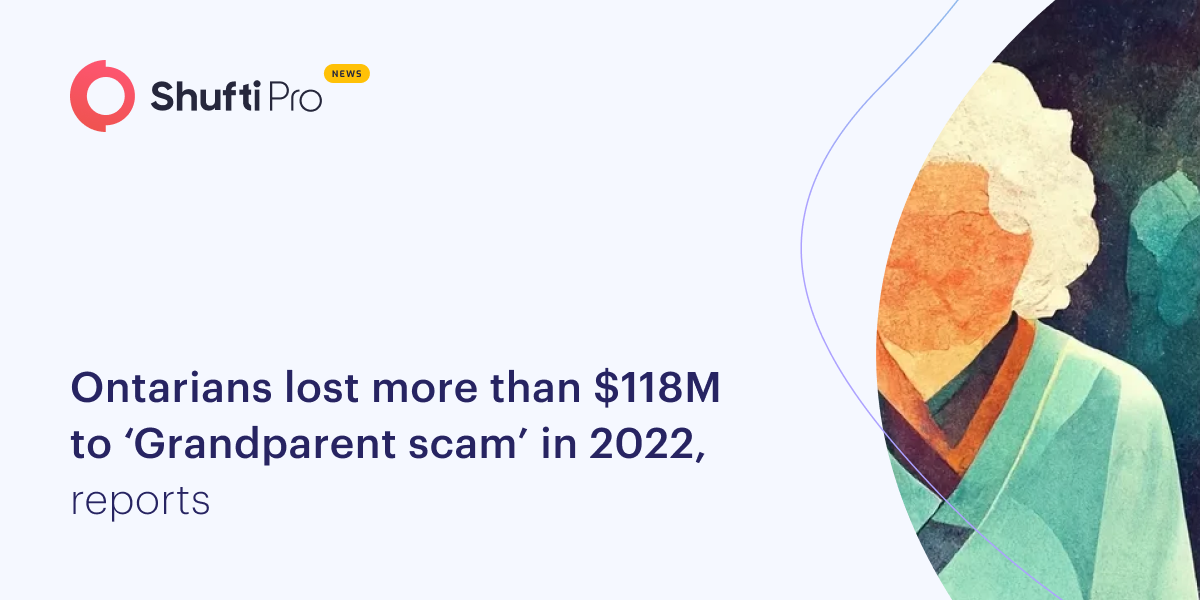 Explore More
Explore More
News
Giaba Trains BDC Operators for Money Laundering & Terrorist Financing
GIABA (Inter-Governmental Action Group against Money Laundering in West Africa) has started a thr...
 Explore More
Explore More
News
EDD Fraud Scandal in California – 87 Suspects Arrested
Within two weeks, the Beverly Hills Police have arrested 87 people that are suspected to be invol...
 Explore More
Explore More
News
Binance’s Regulatory Setback in Singapore Shifts Attention to Middle East
Binance, the world’s largest cryptocurrency exchange, withdrew its application for licence in Sin...
 Explore More
Explore More
News
Wealthy Americans Targeted by U.S. in Panama Tax-fraud Probe
Financial authorities in the US obtained a legal mandate to acquire information about wealthy cit...
 Explore More
Explore More
News
Leaked Draft: EU Plans to Ban Privacy Enhancing Crypto Coins
CoinDesk has received a leaked draft of the money laundering bill, disclosing plans of the Europe...
 Explore More
Explore More
News
Man Sentenced to 5 Years in Jail for Laundering $2.6M Through BTC ATMs
UK law enforcement authorities recently sentenced a 22-year-old man named Bazyli Rymarz to 5 year...
 Explore More
Explore More
News
SEC Partners with Government Agencies and Philippines Police to Combat Money Laundering
The SEC signed a data-sharing agreement with the Philippines police and other government agencies...
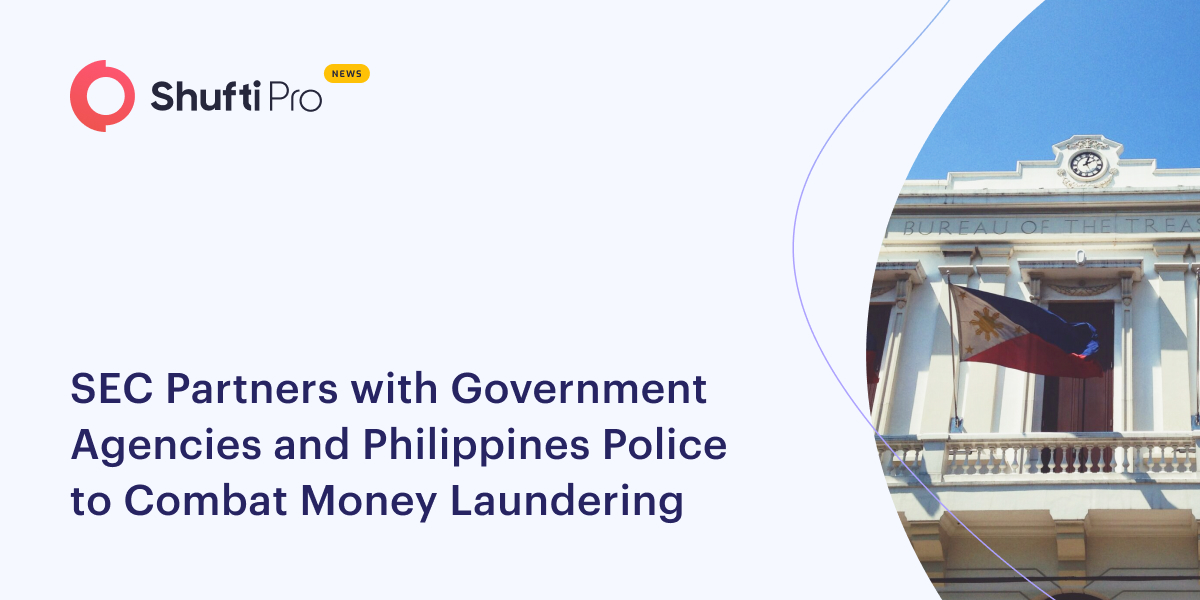 Explore More
Explore More
News
MALACAÑANG Orders Relevant Government Agencies to Implement Anti-Money Laundering Plans and Programs
Aiming to exit the Financial Action Task Force’s (FATF) grey list by January 2024, MALACAÑANG Pal...
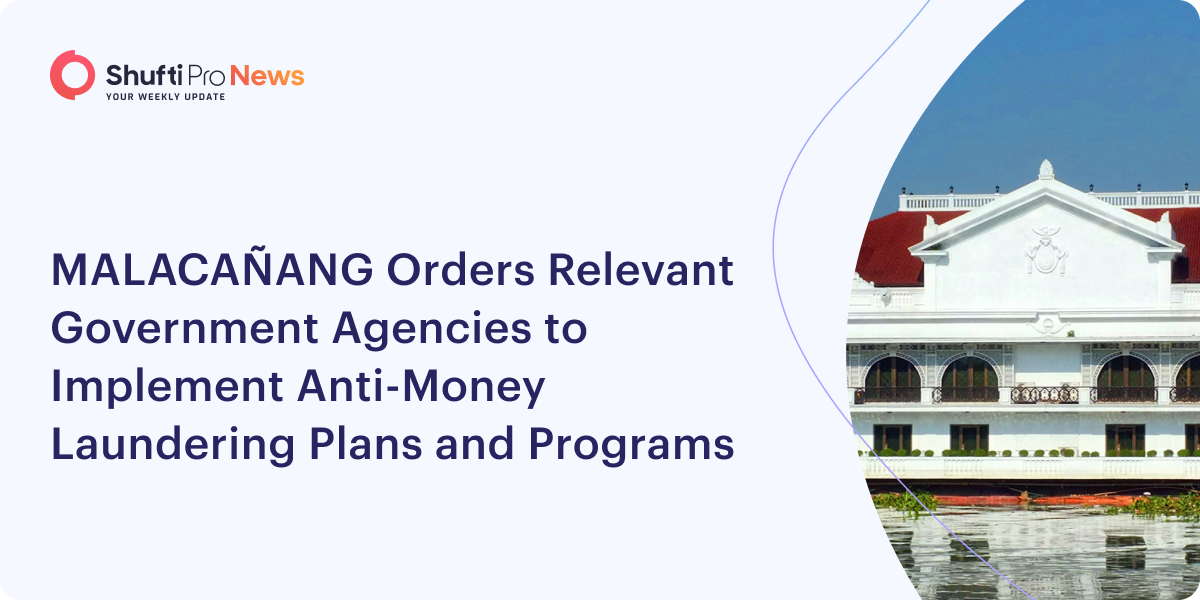 Explore More
Explore More
News
ECB Releases Paper Revealing Financial Crime Risks in Cross-border Payments
ECB has released a paper that reveals the financial risks associated with cross-border payments, ...
 Explore More
Explore More
News
PayPal is hiring crypto engineers amid rumors of Bitcoin integration
Crypto and blockchain experts are being hired by Paypal as rumors circulate that the global payme...
 Explore More
Explore More
News
Brazilian Police Block Crypto Assets Due to Suspected Fraud
Brazilian police have requested the court to block the virtual assets of suspected digital tradin...
 Explore More
Explore More
News
Financial Regulators in Uganda Demands Government to Set Crypto Regulations
Uganda’s financia regulators, Financial Intelligence Authority (FIA), want the government to take...
 Explore More
Explore More
News
Singapore Proposes Additional AML/CFT Requirements for FIs
Monetary Authority Singapore has issued a consultation paper proposing the scope of AML/CFT to be...
 Explore More
Explore More
News
Gambling Commission Fines Entain £17m for Social Responsibility & Anti-Money Laundering Failures
Ladbrokes owner Entain has been fined £17m by the Gambling Commission for social responsibility a...
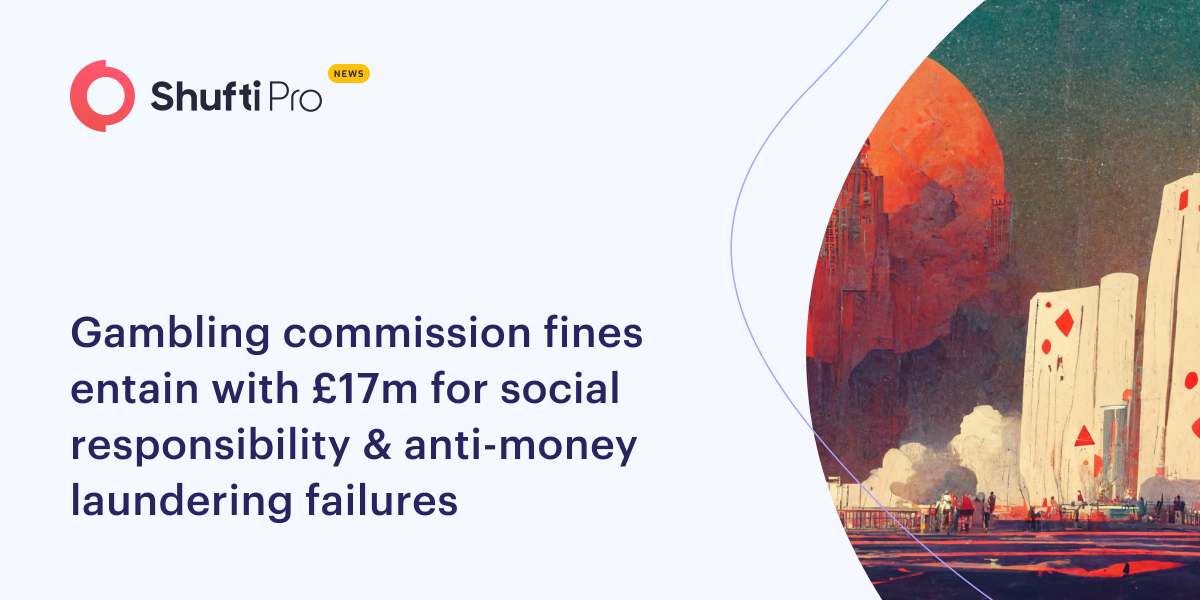 Explore More
Explore More
News
Singapore Monetary Authority to Review Rising Card Scam Cases
The Monetary Authority of Singapore (MAS) is reviewing the liability framework for card scams, gi...
 Explore More
Explore More
News
BPI Crackdowns on Money Mules to Secure Financial Institutions
The Bank of Philippine Islands (BPI) was flagged on Wednesday as it was suspected to be involved ...
 Explore More
Explore More
News
UK to End “Golden Visa” Regime to Tackle Money Laundering
The UK is looking to scrap its so-called “Golden Visa” regime in a short period as Russian action...
 Explore More
Explore More
News
UK watchdogs launch ad-scam alert system to control online fraud
The United Kingdom Advertising Standards Authority (ASA) and the Internet Advertising Office (IAB...
 Explore More
Explore More
News
Japanese Gaming Giant Capcom Fell Victim to Cyberattacks
The famous gaming giant, Capcom, is being blackmailed by cyberattackers to pay $11 million bitcoi...
 Explore More
Explore More
News
FCA Probe into Barclays for Anti-Money Laundering Failings
The Financial Conduct Authority opened a probe into Barclays for suspected failings in compliance...
 Explore More
Explore More
News
Canada to Update AML Laws for Payments Services, FinTechs and Crowdfunding Platforms
The Canadian government’s federal budget announced that new regulations will be implemented to up...
 Explore More
Explore More
News
Singapore sees 300% yearly spike in Q1 cryptojacking attacks amid Coronavirus
Data published by Russian cybersecurity firm Kaspersky depicts that Singapore has witnessed a sud...
 Explore More
Explore More
News
UK Government Issues New Guidance On Data Collection Related To Self Custody Crypto Wallets
The government of the United Kingdom is issuing new rules on the collection of data for the crypt...
 Explore More
Explore More
News
Britain Court Urges Binance for Better Financial Crime Prevention
The Court of London in an order emphasised that Binance should develop policies and procedures to...
 Explore More
Explore More
News
FATF Issues Guidance Paper For Incorporating Digital ID
The Financial Action Task Force (FATF) has issued a guidance paper, last week, that outlines a ri...
 Explore More
Explore More
News
FCA Emphasises on Companies to Invest in Compliance Program
The U.K’s financial crime investigation agency is now taking steps that will involve the companie...
 Explore More
Explore More
News
Rules for AMLC Inquiry for Bank Accounts Released by the Court of Appeals (CA)
On Sunday, the Court of Appeals (CA) issued its rule of process for assessing the deposit or inve...
 Explore More
Explore More
News
$2 Shell company laundered hundreds of millions at Crown Casino Perth
International organizations are believed to be using Crown Perth to launder hundreds through $2 s...
 Explore More
Explore More
News
Central Bank of Bahamas Calls for Stringent Due Diligence in the Wake of FTX Collapse
The Bahamas’ Central Bank has called for stricter due diligence while moving funds in the w...
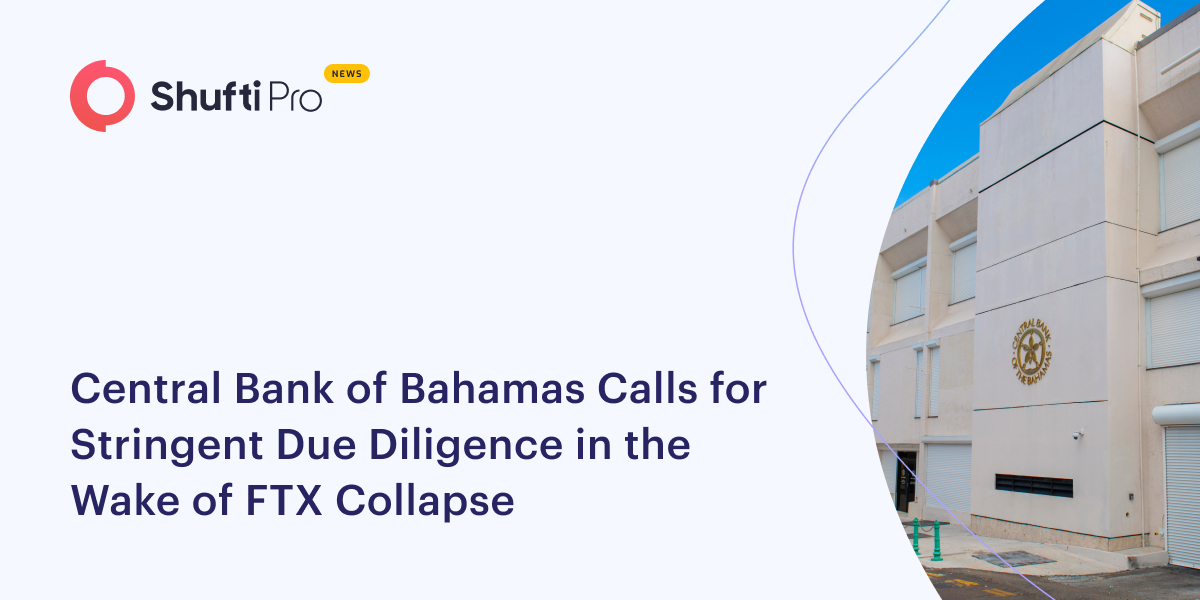 Explore More
Explore More
News
Nigeria’s EFCC Devoted to Combating Money Laundering in Real Estate Sector
The Economic and Financial Crimes Commission chairman says that the agency is committed to fighti...
 Explore More
Explore More
News
WhatsApp accounts hacked to acquire bank card details
Recently a new scam has emerged in Singapore where hackers are found to take-over WhatsApp accoun...
 Explore More
Explore More
News
Arizona Bank Used to Funnel 11 Million USD in a Money Laundering Scheme
According to Federal prosecutors, a money-laundering scheme has been successful in funneling $11 ...
 Explore More
Explore More
News
Australian Government Announces Development of Gambling Regulations Commission
Australian spokespersons for Gambling and Harm Reduction forced the New South Wales (NSW) governm...
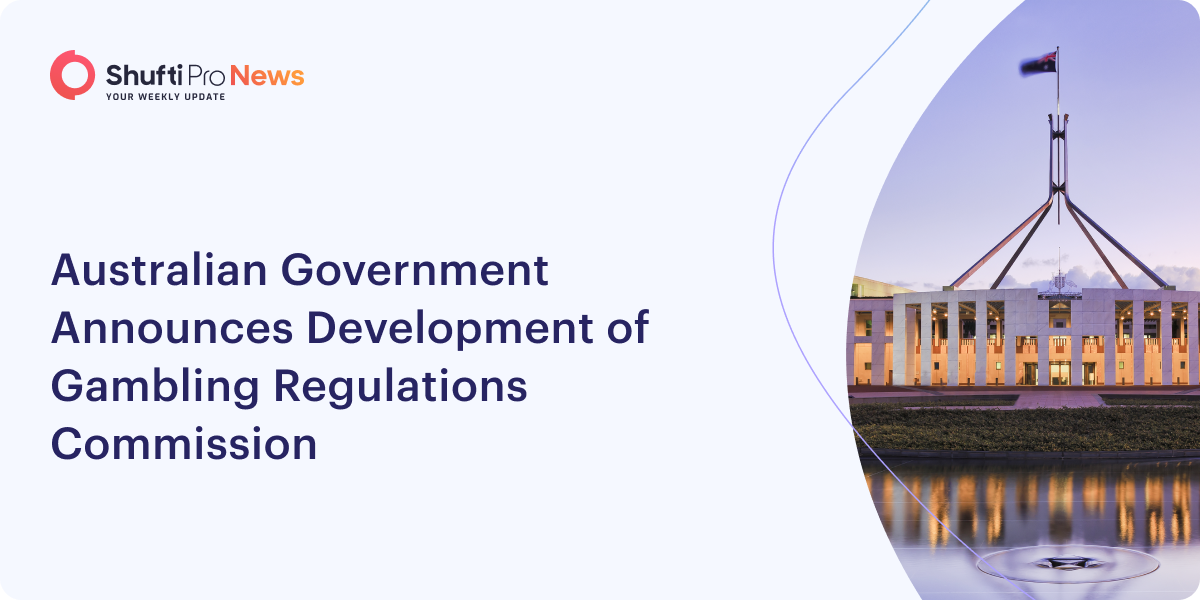 Explore More
Explore More
News
ProtonMail added an encrypted calendar to its encrypted Gmail competitor
Previous year Google faced a hefty fine of $170 million by the Federal Trade Commission following...
 Explore More
Explore More
News
AAT Warns UK Businesses are Vulnerable to Money Laundering Threat After Reforming AML Regulations
The Association of Accounting Technicians (AAT) warned the UK government that reforming Anti-Mone...
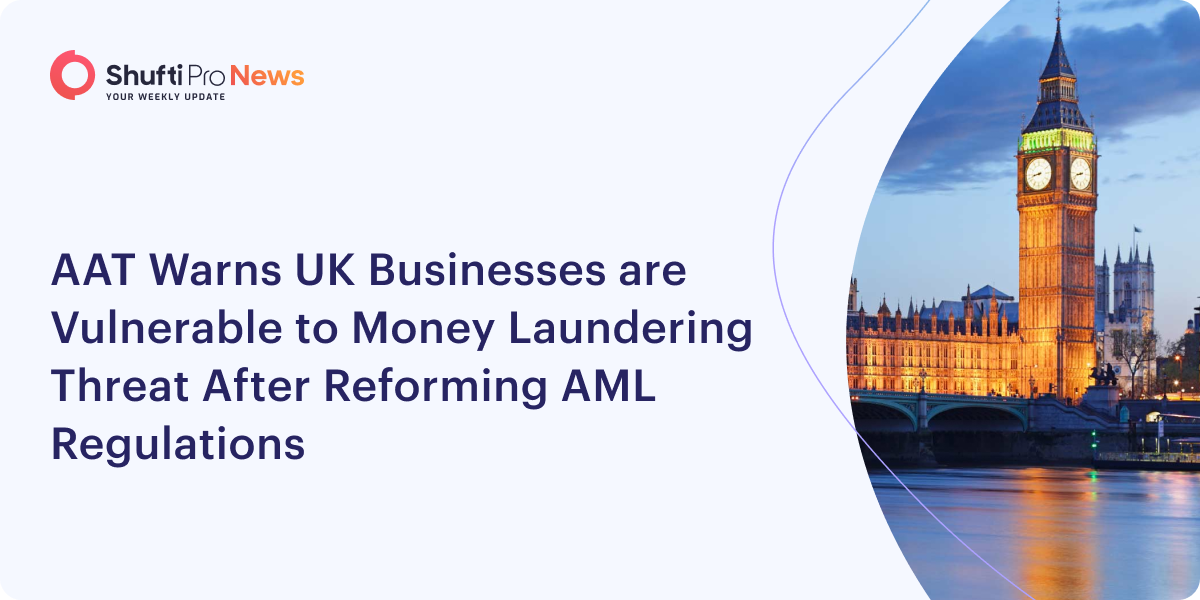 Explore More
Explore More
News
Central Bank of Morocco to Introduce a Comprehensive Crypto Regulation Bill
Morocco’s Central Bank is drafting a set of comprehensive cryptocurrency laws as the digital asse...
 Explore More
Explore More
News
Canada Financial Crimes Agency Questioned on Effectiveness of Anti-Fraud Measures
Anti-fraud experts are reporting concerns regarding the Liberals’ newly announced Canada Financia...
 Explore More
Explore More
News
Japan’s regulator verifies 2 new digital currency alliances
Financial regulators in Japan have approved two organizations to act as digital currency associat...
 Explore More
Explore More
News
SEC Chair Gary Gensler Turns to Congress to Address Crypto Wild West
SEC Chairman stresses the need for proper checks on crypto exchange platforms, given the volatili...
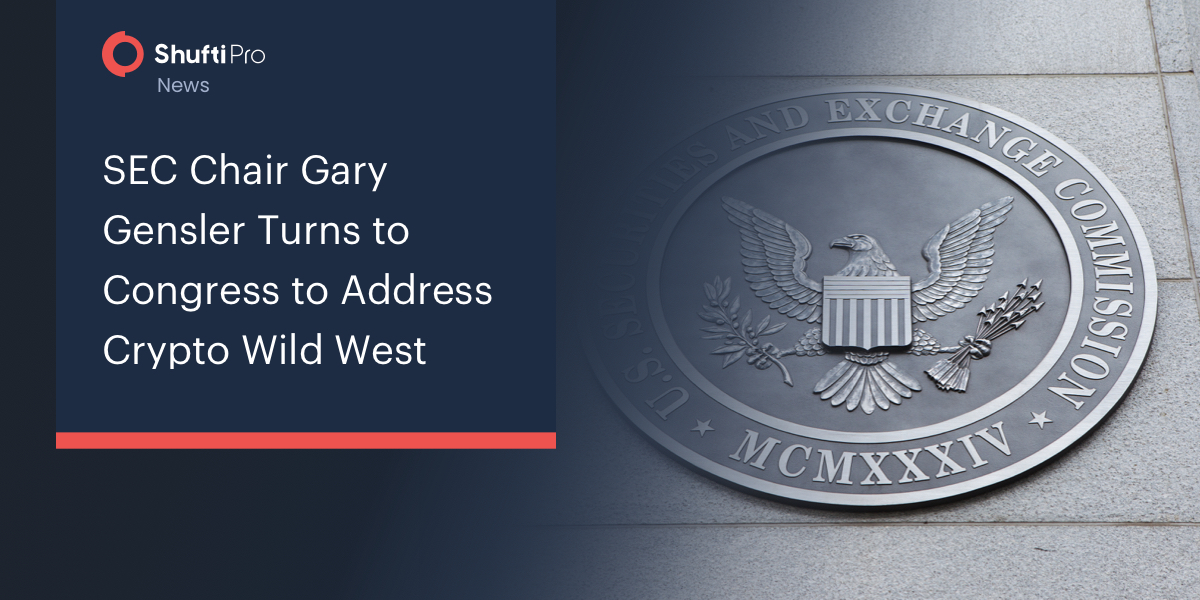 Explore More
Explore More
News
Atomic Wallet Hack Results in $35 Million Loss as Investigation Continues
Atomic Wallet users have reported losing millions of dollars worth of cryptocurrency. It was anno...
 Explore More
Explore More
News
AI-based voice cloning induces new scams
Vijay Balasubramaniyan, the CEO, CTO, and Co-founder of Pindrop Security, warns the world about a...
 Explore More
Explore More
News
Irish Police warns about the latest internet fraud
The local Irish police (Gardai) is persuading people not to fall prey to the recent online bankin...
 Explore More
Explore More
News
USD 10.4 Billion Paid by Financial Groups in 2020 in Regulatory Fines
Know Your Customer and Anti-money Laundering non-compliance penalties rose 26% this year. Many pr...
 Explore More
Explore More
News
SA Banks at High Risk of Money Laundering & Terrorist Financing, Says Prudential Authority Report
South African banks have moved up into the high-risk category in the new report from the Prudenti...
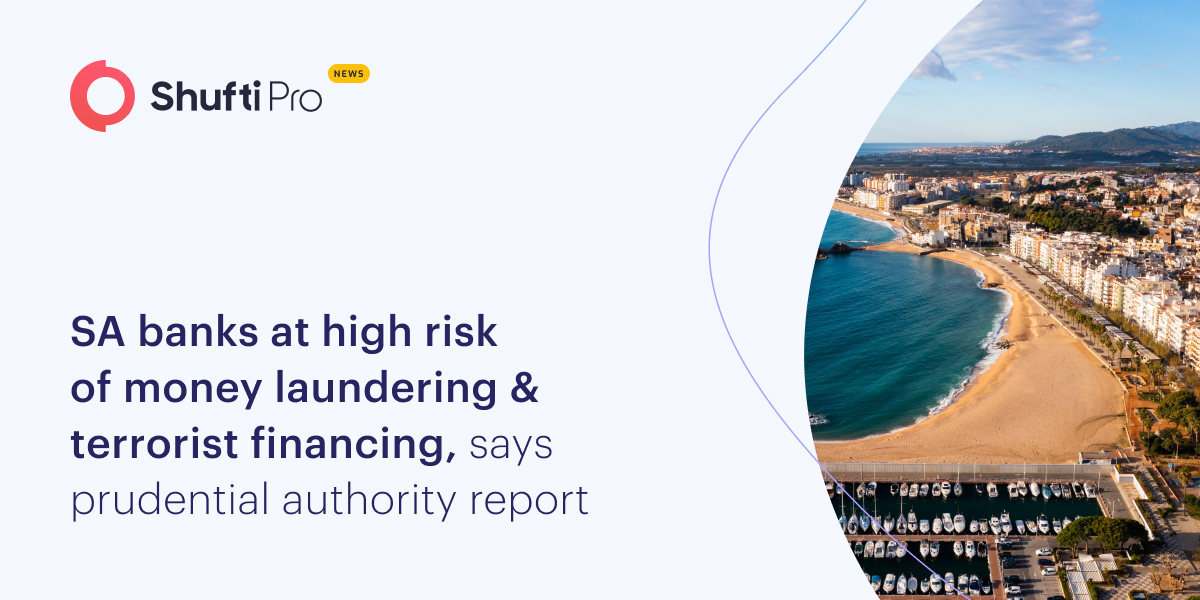 Explore More
Explore More
News
Non-Compliant Banks Can End Up In FATF’s Gray list – Warns Governor of the South African Reserve Bank
Lesetja Kganyago, Governor SARB confirms to the Parliament’s standing committee about the i...
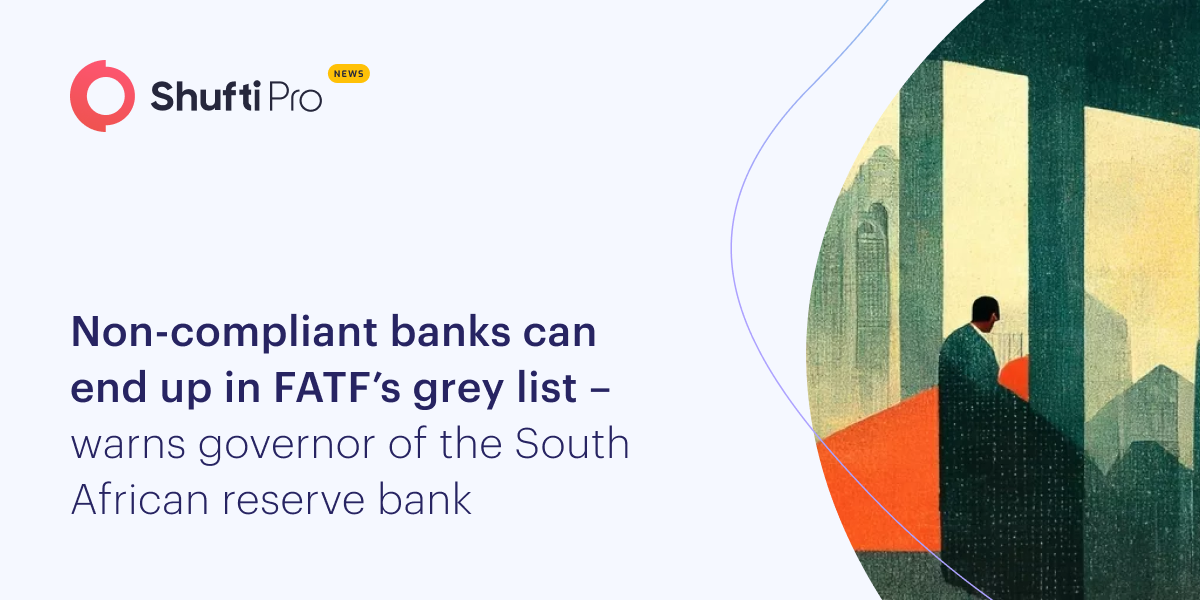 Explore More
Explore More
News
UK FCA Orders Illegal Crypto Service Providers to Shut Down ATMs
The UK’s Financial Conduct Authority has ordered crypto firms operating illegally in the country ...
 Explore More
Explore More
News
Binance Resorts to Shady Crypto Firms as Authorised Options Run Short
Binance, the global crypto exchange leader, retract to shady asset companies as authorised option...
 Explore More
Explore More
News
Natwest Caps Transfer Limit to Binance Over Fraud Concerns
Natwest bank is scrutinizing cryptocurrency transactions, including Binance transactions, due to ...
 Explore More
Explore More
News
Seychelles Upgrade on FATF Recommendation to Strengthen Anti-Money Laundering Measures
Seychelles has upgraded and implemented 5 FATF recommendations to strengthen anti-money launderin...
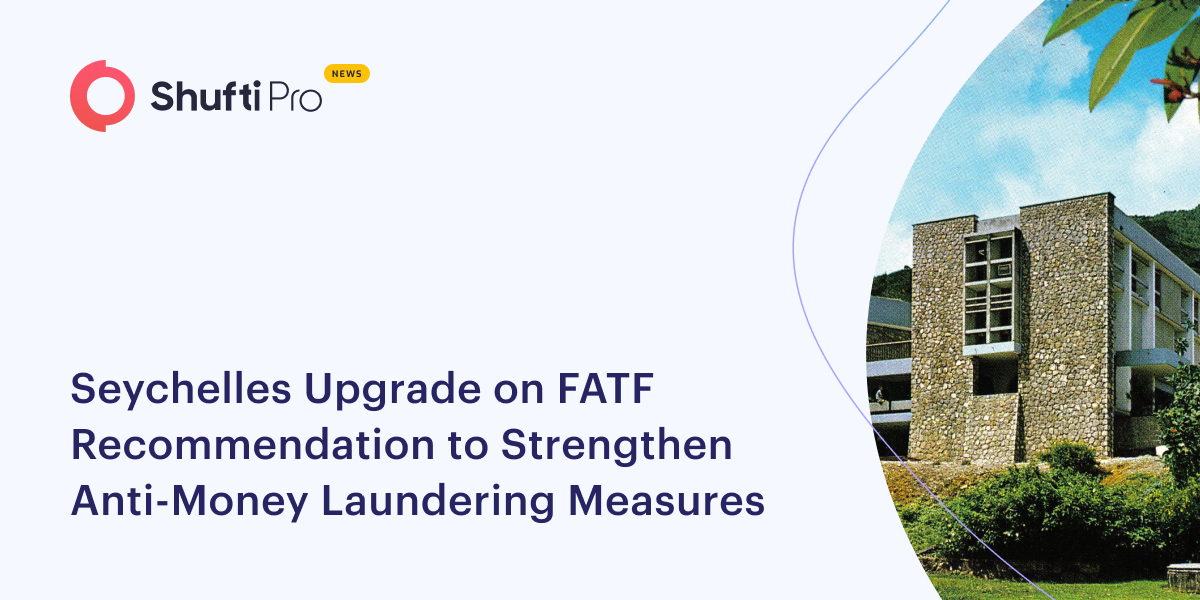 Explore More
Explore More
News
Kansas Reports Highest Number of Identity Theft Cases in 2020
New research conducted reveals that Kansas State has been ranked at number one for having the mos...
 Explore More
Explore More
News
FATF International Cooperation Review Group Meet in Mauritius to Discuss UAE’s Position on the Gray List
Despite ongoing financial crime, the US and several other Western countries have paid no heed to ...
 Explore More
Explore More
News
UBS to Restrict Credit Suisse Bankers After Takeover
The bankers of Credit Suisse (CSGN.S) will be subjected to tighter regulations introduced by UBS ...
 Explore More
Explore More
News
Pandemic Fraud Crackdown: US Bank Employees Indicted Over Document Fraud
Bank employees and tax preparers fraudulently applied for $3M+ in pandemic relief loans through f...
 Explore More
Explore More
News
Jamaica Passes a New Bill to Counter Money Laundering
The Senate has approved the Company (Amendment) Act 2023, which will enable Jamaica to meet inter...
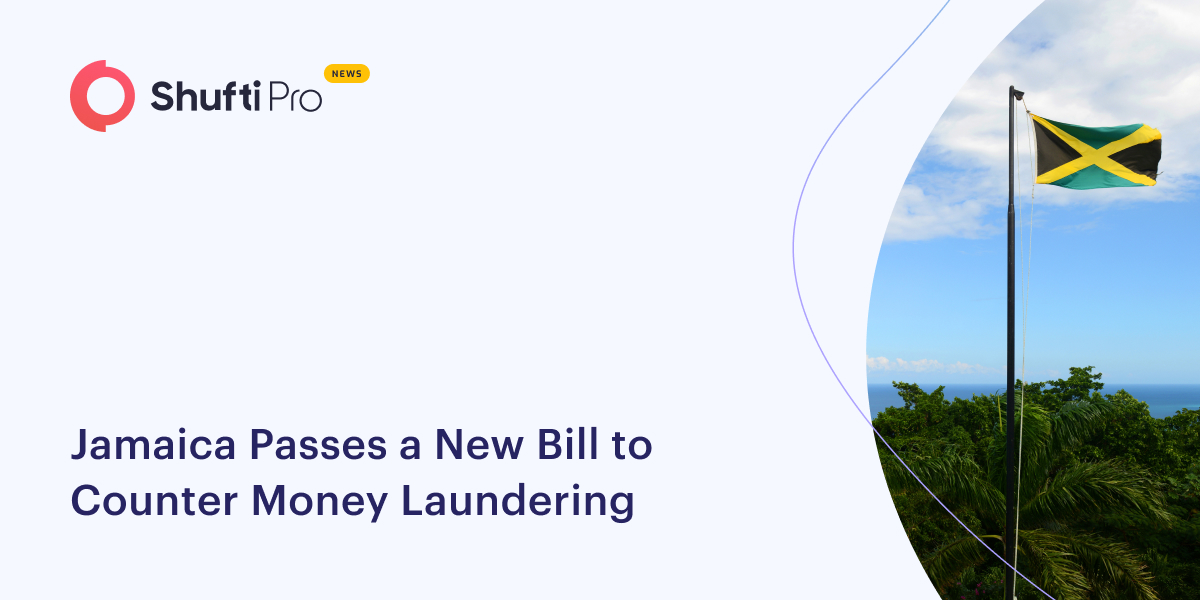 Explore More
Explore More
News
China’s securities watchdog commits to clean up financial markets
SHANGHAI – China’s security watchdog vowed a number of measures to clean up its financial m...
 Explore More
Explore More
News
The Cayman Islands Pleads to be Removed from the FATF’s ‘Gray List’ of Jurisdictions Suspected of Money Laundering
An initiative by the Cayman Islands in France, on June 19th, asked the Financial Authority Task F...
 Explore More
Explore More
News
Binance’s Regulatory Setback in Singapore Shifts Attention to Middle East
Binance, the world’s largest cryptocurrency exchange, withdrew its application for licence in Sin...
 Explore More
Explore More
News
US Treasury Launches New Financial Force to Combat Illegal Fentanyl Trade
The US Treasury Department has announced the launch of the Counter-Fentanyl Strike Force to comba...
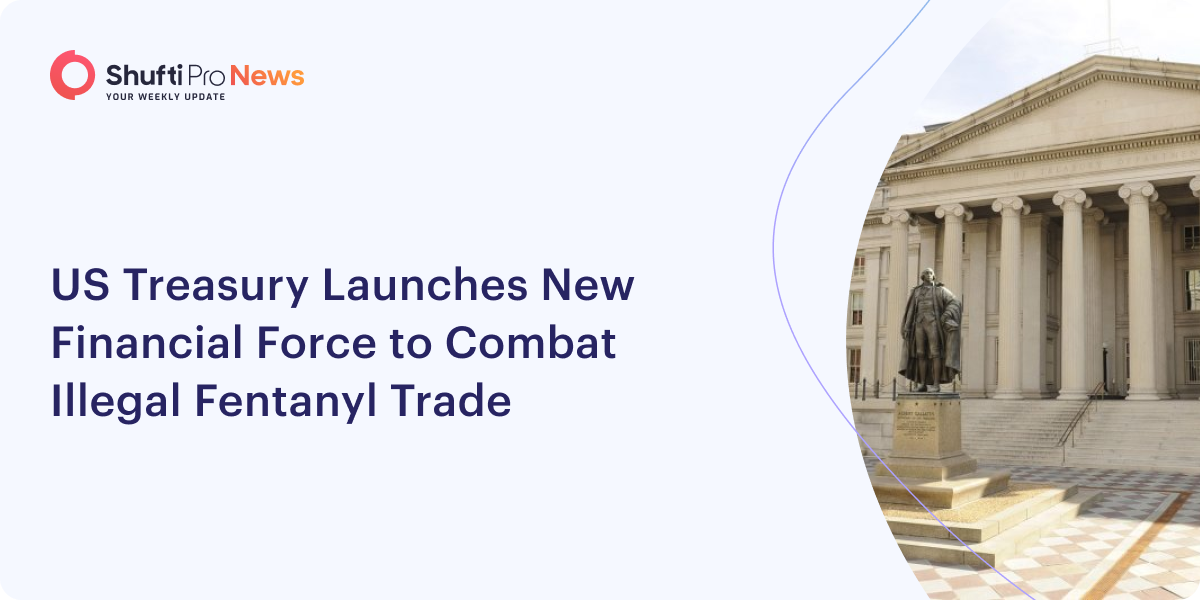 Explore More
Explore More
News
Garantex Sanctioned by the US for Laundering Over $100 Million
The US Treasury Department has sanctioned the virtual currency exchange Garantex for facilitating...
 Explore More
Explore More
News
New Guidelines for Workers Will Deter Fraud in Nigeria’s Financial Sector – Says ASSBIFI
As per the Association of Senior Staff of Banks, Insurance, and Financial Institutions (ASSBIFI),...
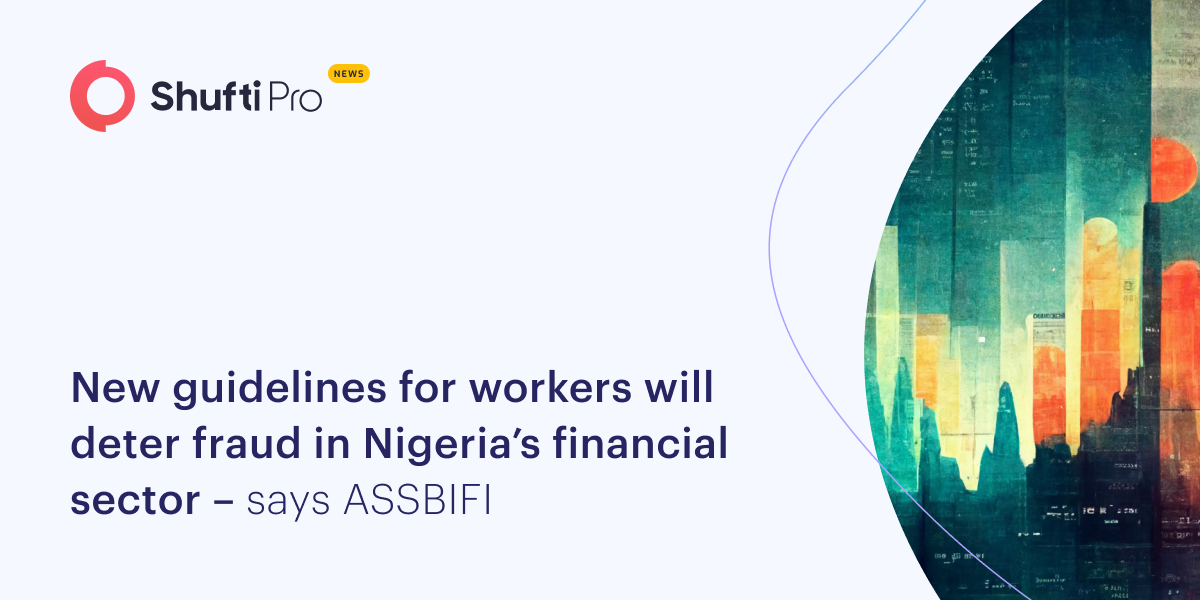 Explore More
Explore More
News
Fraudulent crypto exchange shut down by UK High Court
The UK High Court has designated the Official Receiver as liquidator of GPay Ltd, the cryptocurre...
 Explore More
Explore More
News
Hong Kong Police Seizes $65 Million From Triad Controlled Money Laundering Ring
Hong Kong police detained 458 people and seized $65 million in connection with an extensive crim...
 Explore More
Explore More
News
African Federal Government Urges Collaboration to Combat Money Laundering and Terrorist Financing
The African Federal Government stressed the urgent teamwork needed to combat money laundering, te...
 Explore More
Explore More











































































